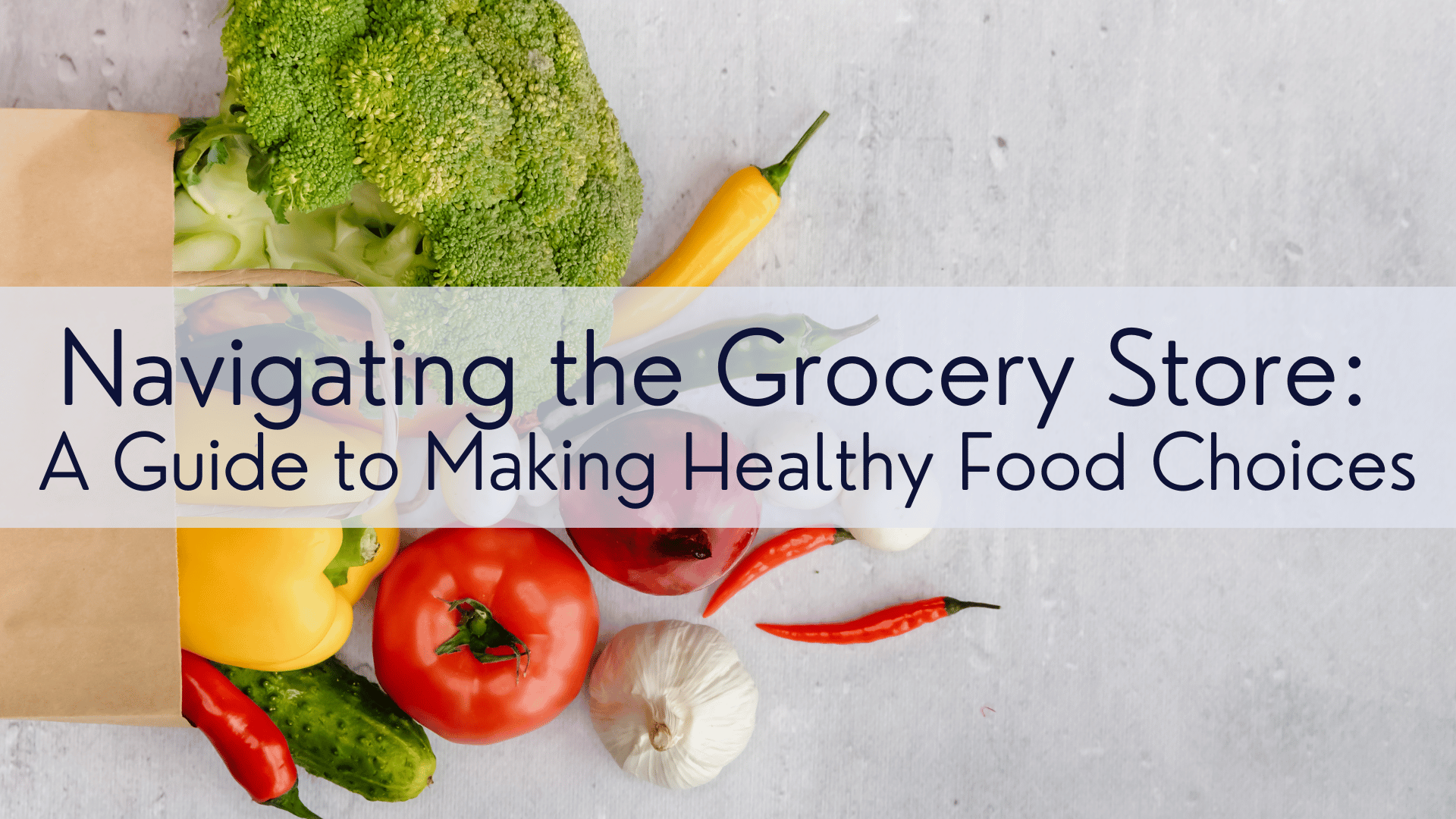The grocery store can be an overwhelming place, filled with countless options and tempting food choices. When it comes to making healthy food choices, navigating the aisles strategically is essential. By arming yourself with knowledge and a plan, you can make informed decisions that support your health and well-being. In this article, we’ll provide you with a guide to navigate the grocery store and make healthier food choices.
- Plan Ahead: Before heading to the grocery store, take some time to plan your meals for the week. This will help you create a shopping list based on your intended meals and avoid impulse purchases. Consider incorporating a variety of fruits, vegetables, whole grains, lean proteins and healthy fats into your meals.
- Shop the Perimeter: In most grocery stores, the perimeter is where you’ll find fresh produce and other whole foods. Start your shopping journey by exploring these sections first. Fill your cart with nutrient-dense fruits, vegetables, lean proteins like tofu and legumes and healthy whole-food fats like nuts and seeds. These items should form the foundation of your healthy eating plan.
- Choose Whole Grains: When selecting grains, opt for whole grains over refined grains. Whole grains, such as brown rice, quinoa and oats, are rich in fibre, vitamins, and minerals. Avoid products labeled as “refined” or “enriched” and look for those labeled “100% whole grain” to ensure you’re getting the most nutritional value.
- Read Food Labels: Take the time to read and understand food labels. Look for products with minimal ingredients and avoid those that are high in added sugars, unhealthy fats and artificial additives. Pay attention to the serving size and the nutrient content, including the amounts of fibre, protein and essential vitamins and minerals.
- Be Mindful of Sugary and Processed Foods: The centre aisles of the grocery store are often filled with processed and sugary foods that can derail your health goals. Be mindful of these items and limit your consumption of processed snacks, sugary cereals, soda and packaged desserts. Instead, focus on whole foods and fresh ingredients.
- Shop Seasonally: Seasonal produce is not only fresher but often more affordable as well. Take advantage of the seasonal offerings and incorporate a variety of fruits and vegetables into your meals. Not only will you enjoy the flavors and textures of in-season produce, but you’ll also reap the nutritional benefits they provide.
- Don’t Shop Hungry: Shopping on an empty stomach can lead to impulsive and unhealthy food choices. Eat a balanced meal or snack before heading to the grocery store to curb hunger and make rational decisions. Shopping with a satisfied stomach will help you stay focused on your health goals and resist temptations.
- Incorporate Healthy Snacks: Fill your cart with wholesome snack options that will nourish you throughout the day. Instead of reaching for chips or cookies, choose options like raw nuts, seeds, fresh fruits, coconut yogurt, or hummus with carrot sticks. Having these healthy snacks on hand will prevent you from resorting to less nutritious choices when hunger strikes.
- Opt for Healthy Cooking Oils: When it comes to cooking oils, choose healthier options like olive oil, avocado oil, or coconut oil. These oils are rich in monounsaturated fats or medium-chain triglycerides (MCTs) and offer health benefits compared to oils high in saturated or trans fats. Use them in moderation for cooking or as dressings for salads.
- Be Selective with Condiments: Condiments can add flavour to your meals but can also be a hidden source of added sugars, unhealthy fats and excessive sodium. Read the labels of condiments like ketchup, salad dressings, and barbecue sauces and choose options that are lower in added sugars and unhealthy additives. Alternatively, experiment with homemade versions using healthier ingredients.
Navigating the grocery store doesn’t have to be a daunting task. By planning ahead, focusing on whole foods, reading labels, and being mindful of your choices, you can make healthier food choices that support your well-being. Remember, small changes in your shopping habits can have a significant impact on your overall health. So, grab your shopping list and navigate the aisles with confidence, knowing that you’re making choices that nourish your body and promote a healthier lifestyle.

